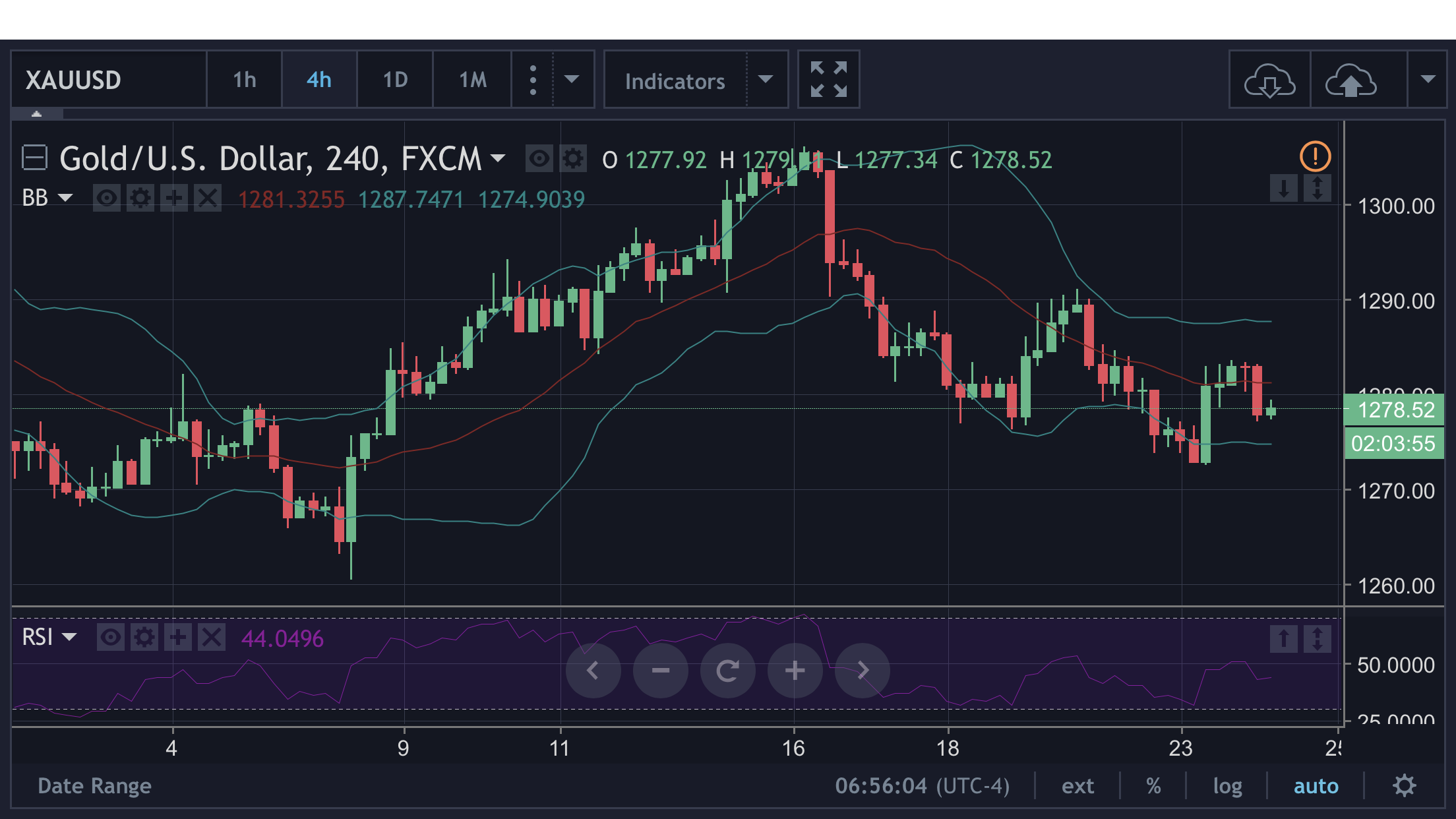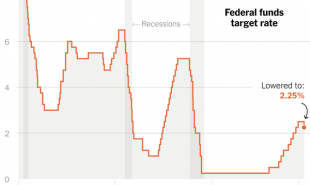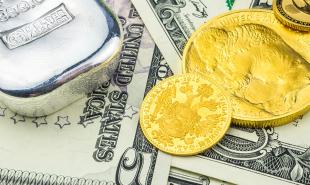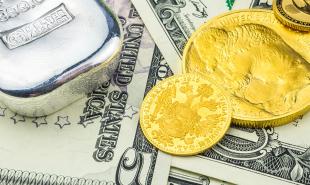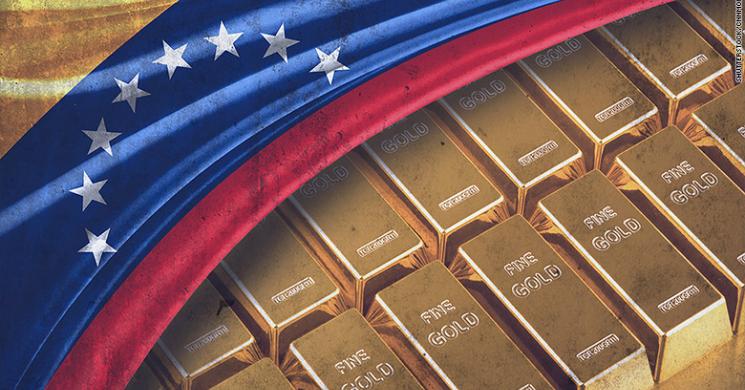
UPDATE: 6:50 am oct 24- In reply to the comments and emails regarding “who in their right mind would swap their gold for more paper?!”
The answer without sarcasm is Venezuela has to.
It needs more liquid currency to pay debts. It needs dollars specifically. The dollar’s reserve currency status combined with gold not being an accepted currency or even a 100% collateralizable asset makes it necessary to either sell their gold for cash, or borrow money against their gold; the latter being what they did this time.
Frankly any government that wants to or is talked into doing a swap loan cash for gold is asking for trouble especially when they have to put up part of that same cash for margin as we think Venezuela did here.
The leaders of Venezuela are most likely financial ignoramuses who have relied on the steady flow of USD for their oil to prop up their economy so long they don’t even do the math.
In short, easy prey for a smart bank.- Vbl
Cash 4 Gold, Venezuelan Style
Contributed by Vince Lanci for Soren K. Group:
We cannot help but think the Venezuela gold swap “lapse” is somehow partly responsible in the market’s move lower over the last few days, if not the last weeks. The basis for that is simple but only conjecture on how markets digest defaults on collateralized loans.
And let’s face it, by the time it is disclosed, the creditor knows and is out of risk if an actual default occurs. Mortgage lenders don’t advertise their loans defaulting. Why would anyone think this is fresh news to the Gold community?
From Reuters today:
Venezuela this month allowed a $1.7 billion gold swap with Germany’s Deutsche Bank AG (DBKGn.DE) to lapse, according to an opposition legislator who said it weakens the balance sheet of the crisis-stricken OPEC nation’s central bank.
Through the operation, Venezuela had received $1.2 billion in cash in exchange for putting up $1.7 billion worth of gold in guarantee, part of efforts to improve the liquidity of foreign reserves amid heavy foreign debt payments and low oil prices.
Right off the bat you can see that it’s bad to need cash when you have gold. The bank will not give you 100% swap value ever!
Meanwhile at the height of the Greek EU crisis the ECB was guaranteeing bonds at 100% collateral. It’s all baked into the market structure folks.
Why would a bank ever be long gold when their clients
are
producers and countries that can’t manage their finances for shit?!
When a debtor defaults on a collateralized loan, the collateral is passed to the lender. A simple example would be if you defaulted on your mortgage, the bank would take possession. Banks aren’t in the real estate business and will sell that home to stay liquid and get that cash back to work other deals.
If, and it’s a big if as there are many moving parts to these deals, Venezuela does default on a gold swap loan, then the effect would ultimately lead to the lender taking possession of the asset pledged, in his case Gold. And that makes the lender who is not interested in being long gold and can find better, lower lying fruit for his cash, more likely to sell Gold given to him; or at least hedge the physical with futures.
This is all conjecture at this point. But we’re pretty comfortable with our assessments here of what could or did happen in the past few weeks. A little reverse engineering says odds are Gold sold off on a leaky boat in someone’s port. It is notable that we have seen this before when other bullion banks bought sovereign gold from central banks.
Gold prices dropped before the sale (BOE in 1998-99) not just because it was being sold, but also because that it would be sold was leaked. And when that happens, the price drops and the seller must sell at a price to the bullion dealer lower than when he first got the idea to sell his nations gold. No doubt the BOE sales were irrational. Central banks weren’t that sharp on handling their deals in those days.
So there is precedent for Gold dropping when it transfers hands on a default or any other type of irrational sale. But not all credit/ gold based defaults are bearish.
Gold rallied in 1999 on the Ashanti default. Ashanti was SHORT gold in hedge form against their production but over leveraged and poorly advised. They had to lift hedges because they couldn’t make the calls. Bullion banks knew this. So, what usually happens in these cases is the losses on the credit side are made up for by the profits on the prop trading side.
To be fair, it is possible that DB hedged this Gold swap at the time of the deal. In doing a hedge then, they lock in $500MM in the event of a default. Who knows. But any default situation leads to an implementation of a hedge OR an unwinding of a hedges. Contracts will hit the market if they haven’t already. For us, it boils down to believing based on experience and information that the market absorbed some selling by either DB or some speculators guessing either Venezuela or DB had metal to sell. Maybe it is another latam central bank getting spooked and the selling now instead of doing a loan.
The point is the market digested something from this. And it will affect future cash for Gold deals in Latam.
Gold is (edit - softer) stable in Asia after recouping its losses late in the day today.
Spot Gold at 6:55 am <click chart for Live Prices>
Forward Guidance
Congress gets ambitious over tax plan, it's PMI day, and HSBC trader convicted of fraud.
Tax bill due
House and Senate leaders, responding to President Donald Trump’s goal of delivering major tax cuts by the end of the year, have laid out an ambitious schedule for releasing tax legislation over the next few weeks. While Trump yesterday tweeted that there would be no adjustments to tax-deferred retirement plans, members of Congress indicated that potential changes to 401(k) accounts remain on the table. The president also told reporters yesterday that he is “very, very close” to announcing his nominee for chair of the Federal Reserve.
PMI day
A composite Purchasing Managers’ Index for the euro area slipped to 55.9 in October, IHS Markit said this morning. While the drop was slightly larger than economists had predicted, job creation in manufacturing rose to the highest level since data collection began in 1997. The enduring economic recovery will give European Central Bank policy makers food for thought as they gather in Frankfurt later this week where they are likely to decide on how to taper asset purchases. Markit release manufacturing and services PMI data for the U.S. at 9:45 a.m. Eastern Time.
Fraud
Former HSBC Holdings Plc currency trader Mark Johnson was convicted of nine out of 10 fraud and conspiracy counts by a jury in New York yesterday. This is the first conviction in the global currency-rigging scandal that has seen banks pay more than $10 billion in penalties. Johnson’s London counterpart at HSBC, Stuart Scott, is still fighting extradition to the U.S.
Markets mixed
Overnight, the MSCI Asia Pacific Index climbed 0.1 percent, while Japan’s Nikkei 225 Stock Average extended its record winning streak to a 16th day. In Europe, the Stoxx 600 Index was 0.1 percent lower at 5:45 a.m. as markets remained quiet ahead of Thursday’s ECB decision. S&P 500 futures were unchanged after the index ended yesterday’s session lower, the 10-year Treasury yield was at 2.395 percent, and gold retreated.
Party party over
China’s Communist Party congress ended with an elevation of President Xi Jingping to the party’s constitution, putting him alongside Mao Zedong and Deng Xiaoping. Xi’s call to let the market play a “decisive role” in the economy was also included in the text. That’s a sentiment that might ring a little hollow considering officials asked some loss-making firms not to publish quarterly results during the twice-a-decade congress in a bid to maintain economic stability.
Good luck
Read more by Soren K.Group


